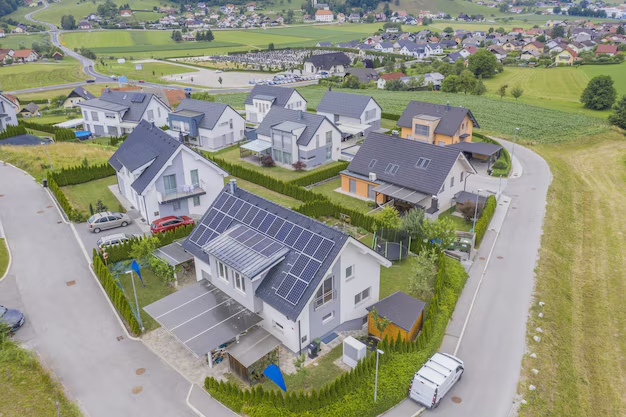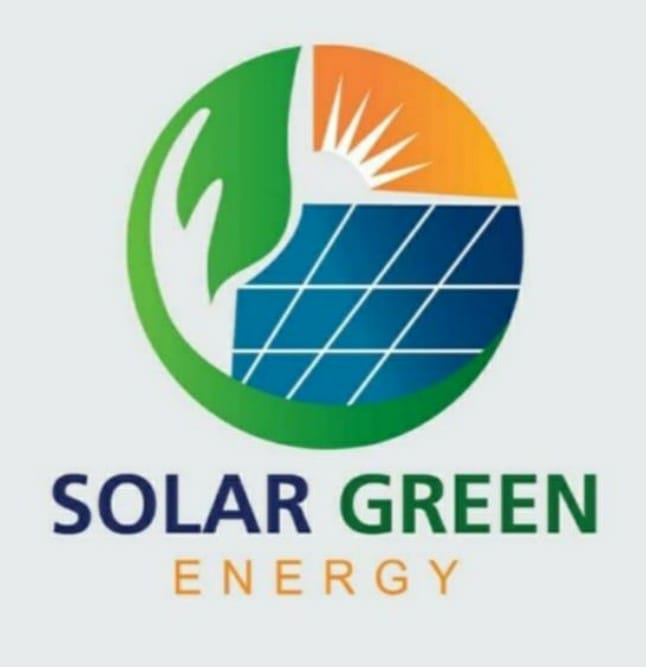Residential solar energy refers to the use of solar power in homes to generate electricity for daily use. This is done by installing solar panels on the roof or other sunny areas of a house. Solar energy systems convert sunlight into electricity, reducing the reliance on traditional grid-based energy sources and helping homeowners lower their energy bills, reduce their carbon footprint, and contribute to sustainable living.
How Does Residential Solar Energy Work?
- Solar Panels: Solar panels (also called photovoltaic panels) are installed on your roof to capture sunlight. These panels are made up of many solar cells that convert sunlight into electricity.
- Inverter: The electricity generated by solar panels is in the form of Direct Current (DC), but most household appliances run on Alternating Current (AC). The inverter converts this DC electricity into AC electricity, making it usable for your home.
- Electricity Meter: Once the electricity is converted, it is used to power your appliances. If your solar panels generate more electricity than you need, the excess power is sent back to the grid through your electric meter, often earning you credits or reducing your future energy costs (this process is known as net metering).
- Storage (Optional): Some homes may install a battery system to store excess energy. This allows homeowners to use the stored electricity at night or on cloudy days, ensuring a continuous energy supply even when the sun isn’t shining.
Benefits of Residential Solar Energy
- Lower Energy Bills: Solar panels can significantly reduce your electricity bills by providing free energy from the sun.
- Energy Independence: Solar power reduces your dependence on the grid, providing more control over your energy needs.
- Environmentally Friendly: Solar energy is a clean, renewable resource that reduces harmful greenhouse gas emissions, making it an eco-friendly choice.
- Increase in Home Value: Homes with solar energy systems can increase in value because of the long-term savings and environmental appeal.
- Tax Incentives: Many governments offer tax credits and rebates for homeowners who install solar energy systems, making it more affordable to go solar.
Why Choose Solar Energy for Your Home?
- Cost Savings: While the initial installation of solar panels may require an upfront investment, the savings on electricity bills can be substantial over time. Many systems pay for themselves in 5-10 years.
- Sustainability: Solar energy is one of the most sustainable forms of energy. It’s renewable, meaning it doesn’t deplete natural resources, and it has little to no environmental impact during operation.
- Energy Security: By generating your own electricity, you reduce the likelihood of experiencing power outages or being subject to price fluctuations in the energy market.
- Technological Advances: Solar technology is continually advancing, and modern solar systems are more efficient and affordable than ever before.
Is Residential Solar Right for You?
Not every home is ideal for solar energy, but a professional solar installer can help assess your roof’s suitability. Factors like the direction your roof faces, shading from trees or buildings, and the amount of sunlight your location receives all influence the efficiency of a solar energy system. However, with various financing options and incentives, solar is becoming more accessible for homeowners everywhere.
Getting Started with Residential Solar Energy
If you’re interested in learning more or taking the first step toward going solar, our team of experts is here to guide you through the process. We offer free consultations, site assessments, and can help you choose the best solar solution for your home.

